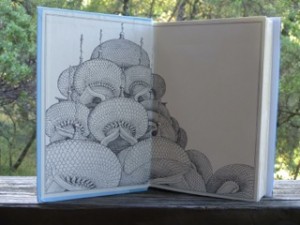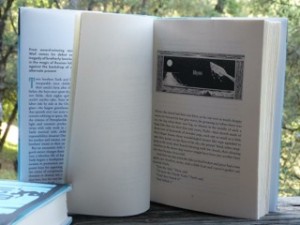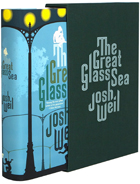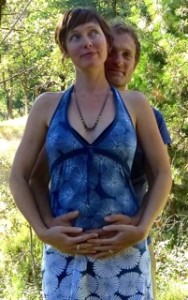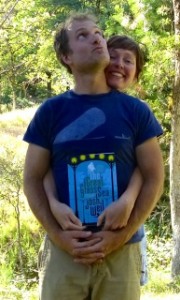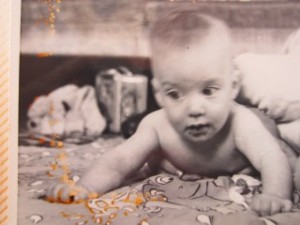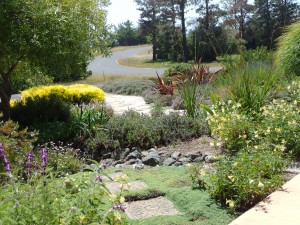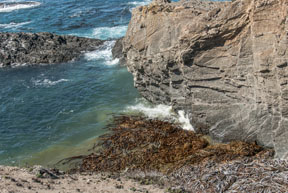Archive for the ‘writers conference’ Category
Josh Weil novel launched
I’m so proud of young novelist Josh Weil, whom Mendocino Coast Writers Conference picked as a rising star and invited to be on faculty at our 2013 conference. Here’s news from Josh worth sharing:
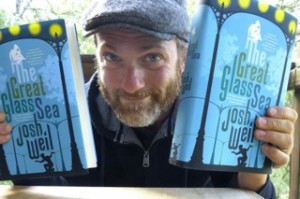 literary prize, the most incredible first-edition program I’ve ever seen, my complete book tour schedule—but there are two reasons, above all else, that this issue of The Gazette is a pretty special edition.
literary prize, the most incredible first-edition program I’ve ever seen, my complete book tour schedule—but there are two reasons, above all else, that this issue of The Gazette is a pretty special edition.“[An] impressive debut…As broad as its themes are—touching on political, philosophical and historical divisions—Weil’s first novel is rooted in family and fine storytelling; it’s an engaging, highly satisfying tale blessed by sensitivity and a gifted imagination.”
“A tale of longing and sadness, threaded by Russian folklore and heavy with the weight of love…resplendent and incandescent.”
“A well-timed dystopian tale, the novel beautifully details both the politics of [an] hypothetical Russia—“oligarchs bred beneath the clamp of communism let loose upon loot-fueled dreams”—and its impact on one small family.”
And the first newspaper review (out even before the official publication date!) was even better:
“If complex literary novels really are done for, Josh Weil must’ve missed the text message. His formidable “The Great Glass Sea” knits together strands of traditional Slavic folklore and futuristic speculative fiction to create a passionate reflection on technology and personal happiness. Spanning almost 500 pages, the novel poses mind-bending questions about politics, ecology and the ambivalent closeness of siblings…Weil pulls off dazzling strokes of storytelling…His distinctive voice obliges readers to slow down and swish certain passages around before swallowing…While keeping the sophisticated themes afloat (science vs. nature, the state vs. the individual, family obligation vs. ambition), almost every page flows with respect for the flawed, endearing heroes, Dima and Yarik. Pushing the envelope on literary artistry even further, each chapter begins with a pen-and-ink illustration by the author….A genre-bending epic steeped in archetypal stories, “The Great Glass Sea,” rises above the usual Cain-and-Abel formula by way of sensitive, resourceful craftsmanship.”
And here’s me, now, signing off and saying thank you, again, for continuing to care about what that tyke’s grown up to love, what the writer he became now does, these words on a page that I am so lucky to be able to share with you.
Doing by Not Doing
I thought I was retired from running the Mendocino Coast Writers Conference. But life happens, and so do medical crises. So I’m back as Acting Executive Director, scrambling to pick up the threads of all the detailed tasks that make up a successful conference and continue weaving them into a sweetly patterned braid.
I’ve done it before, several years of befores. My challenge is to keep calm, level-headed, unstressed. I know that to do my job well, I need to take time to do nothing.
This morning Tony and I took one of our favorite walks: from Laguna Point at MacKerricher State Park south along the cliff edge to Virgin Creek Beach, then footprints on smooth wet sand to where the water of Virgin Creek ripples and glitters as it crosses the beach to the sea. There we leave the beach and, picking up our pace, take the weather-beaten old haul road back to the Laguna Point parking lot.
This afternoon as I sit on my front porch, a white-crowned sparrow is singing from a nearby bush. Hummingbirds are working over the purple Mexican sage and yellow sticky monkey flower in front of me. I hear chirps from newly hatched Stellar’s jay chicks as a parent flies in to their nest in the wisteria vine. A violet-green swallow has come and gone from the porch corner cavity where they’ve sometimes nested. Two stems of dry grass dangle from the cavity. Not a good place this year. I warn them in my mind to beware the predatory jays.
Inspired by a talk a year or two back by Lewis Richmond, author of Aging as a Spiritual Practice, I am learning to meditate. It’s hard to push away the clutter of to-do lists, but I think I am making progress.
The mission of the Mendocino Coast Writers Conference is to offer a place where writers find encouragement, expertise and inspiration. As executive director, my encouragement comes from the support and expertise of a wonderful team of volunteers, some of whom have been helping to run the conference for nearly all of its twenty-five years. My inspiration comes from the beauty of the pattern I braid from all these threads of tasks in my hand, its colors imbued with the memory of sea and headland, forest and garden, its thread tension even, unmarred by crises.
For the sake of all the writers who leave Mendocino Coast Writers Conference inspired by the supportive atmosphere the conference team creates, I can do this.
Wave/Rock
I’m jealous of Scottish visual poet Ian Hamilton Finlay.
Last Sunday morning I walked on the cliffs at Chapman Point, just south of Mendocino. Tony, who does the graphics for Mendocino Coast Writers Conference, was taking photographs that might become next year’s program cover or a display ad in Poets & Writers magazine . I contemplated spume lifting from waves as they rolled in steady rhythm against the rocks, and thought about words I might use to convey the sense of transience that pervades this dramatic boundary between earth and sea.
Back home, I started making a list: undercut, backwash, swirl, surge, strata, submerge, carve, crevice, recede, collapse, uplift, unrest, rockfall, bull kelp, blueness, sheer … A few lines started to appear:
In the curve of the undercut
at the cliff’s base
the shape of wave
I decided to let the lines sit for a while and turned to another project. My friend Mary Marcia Casoly had recently sent a link to an anthology, Shadows of the Future: An Otherstream Anthology containing two of her poems. “Vispo,” she called them, visual poetry. Not a form I knew much about, so I Googled it and found a number of sites that had definitions and examples. Visual poetry, I learned, is “poetry that cannot suffer any translation into alternative visual or typographic form without sacrificing some of its meaning and integrity… The ‘quality of presence’ we get from the work depends on visual means, such as typefaces, format, spatial distribution on the page, or the physical form of the book or book object.” (Johanna Drucker)
I opened an example at random. Immediately my entire afternoon at my desk was washed out to sea. Before me was Ian Hamilton Finlay’s “Wave/Rock” from Aspen #7. Just two words repeated: the brown rockrockrock stacked on top of each other so that the near-vertical strata are visible; the blue wave words spread and broken as they crash against the rocks.
Sweet Peas
The 2012 Mendocino Coast Writers Conference ended last night. This morning I picked sweet peas. Over my four-day absence to run the conference, the stems that had been in bud were in full flourish, and the row of pea plants sprawled even more rampantly over chard and carrots in my vegetable garden. I picked enough to refill vases of crumpled has-beens in my house, enough to give away to a friend, enough to fill yet more vases. I pressed my nose into the bouquet, sweet as the hugs of farewell and murmured words of thanks at the conference’s closing dinner.
The scent restored my faith in myself, both as the director of a successful conference, and as a grower of sweet peas. Back when I was a child in school, growing sweet peas was part of the curriculum, like spelling and arithmetic. Each year the Important Visitor would bring the signup sheet and reveal the wondrous names of new varieties. On Seed Day the visitor would return. Precious pennies would be offered up for hard black miracles. The visitor would give instruction in the mysteries of sweet pea growing. We must dig a trench two feet deep. The layer of compost in the bottom of the trench must be at least six inches before we shoveled back the dug and loosened earth. We must soak the seeds in water overnight, then plant exactly one inch deep, and four apart.
The best on Judgment Day took front row place at the flower show, a ribbon tucked beneath a jam jar that held three specimens, each with four blooms on a long stem. My jar sat humbly at the back. I was racked with guilt for shorted measure on the trench. The ground was hard, and my arms ached. My Dad’s compost pile yielded only a thin layer of partially composted weeds. I had tossed in some fresh grass clippings, but even those did not make up the required six inches. The seeds germinated, but the plants were spindly, and none of their flower stems boasted more than three blooms.
The guilt stayed with me all my life. Not enough my love for their bright beauty, not enough my penitence. I was cast down.
This year I decided to try again. A raised vegetable bed had an empty row next to a sheltered wall covered with a strong wire trellis. Remembering my past efforts, I figured that would be enough space. I dug in a bag of soil conditioner with an impressive ingredients list: composted firbark, chicken manure, earthworm castings, bat guano and kelp meal. I planted my seeds, an old-fashioned mix from Renee’s Garden, careful to places them one inch deep and four apart.
The seeds grew. And grew. I wound string from post to post to hold the plants against the trelllis. More string. A length of chicken wire that bulged and sagged. A couple of tomato frames. Soon I gave up. The chard was running to seed anyway, and the carrots were mature enough to survive the shade.
This morning as I teetered on a step-stool to pick the flowers, the thought came to me that their exuberant growth was akin to the joy conference participants were expressing. The Mendocino Coast Writers Conference has as its mission to offer a place where writers find encouragement, expertise and inspiration. This year it all came together. A brilliant group of faculty shared their expertise with participants dedicated to improving their craft, nurtured by a team of volunteers so cohesive that the flow of events was seamless.
Today we’re all exhausted and resting up. Tomorrow we start planning MCWC 2013.
Against Entropy
Such a long gap of time between posts. But now this year’s Mendocino Coast Writers Conference is over and, as I always do after a major project is completed, I am attempting to clean up my midden of a desk. I’m reminded of a novel I read back in the 1960s. The author was Michael Frayn, and the somewhat forgettable plot was about a bunch of hack journalists in London who were bored with their jobs. It’s the title that stuck in my mind: Against Entropy. The notion that our lives are a constant struggle against disorder and decay.
The surface of my desk is now visible in parts. I still have files to sort, both computer and paper. But I no longer despair of restoring order.
The conference was a success. Not financially, in this economically troubled year, but in the quality of instruction and the spirit of community the participants felt. Their glowing evaluation comments made our efforts worthwhile.
Now on to planning the 2011 conference…
